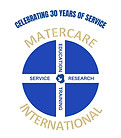#38 John Henry Newman: From Saint to Doctor of the Church
- MaterCare International

- Aug 10, 2025
- 2 min read
The Catholic Church is preparing to bestow one of its most prestigious titles on an Englishman whose life and writings continue to inspire believers around the world.
Blessed with a keen intellect, a deep pastoral heart, and a tireless commitment to truth, Saint John Henry Newman was made a cardinal by Pope Leo XIII in 1879, a role he served in faithfully until his death in 1890. His canonisation in 2019 made him the first Englishman in hundreds of years to be recognised as a saint in the Catholic Church.
Now, nearly 150 years after his elevation to the College of Cardinals, Newman is being honoured again. Last week, Pope Leo XIV announced that he would be named a Doctor of the Church, making him only the 38th person to receive this title and the first Briton born in the past 1,000 years to be so recognised.
What Is a Doctor of the Church?
The title “Doctor of the Church” is reserved for saints whose theological writings and teachings are considered to be of outstanding universal value for the faithful. It is not about academic credentials alone, it is about a witness that shapes the Church’s understanding of faith and its application to the challenges of life.
Doctors of the Church include great figures such as St. Augustine, St. Thomas Aquinas, St. Thérèse of Lisieux, and St. Catherine of Siena. To join their ranks is to have one’s work recognised as timeless in its relevance and transformative in its insight.
Born in 1801, Newman began his career as an Anglican priest before converting to Catholicism in 1845, a decision that cost him dearly in personal and professional terms, yet which he made out of conviction. His writings, including The Idea of a University and An Essay on the Development of Christian Doctrine, display not only intellectual brilliance but also a profound concern for the dignity of the human person, the primacy of conscience, and the integration of faith and reason.
For organisations like MaterCare International, which seeks to serve mothers and children in accordance with Catholic teaching, Newman’s emphasis on the harmony of truth and charity is especially relevant. His belief that faith must be lived out in service to others echoes in the work of medical professionals, missionaries, and advocates who give of themselves to uphold the dignity of life in all circumstances.
In recognising Newman as a Doctor of the Church, Pope Leo XIV is affirming not just the intellectual weight of his works, but their ongoing relevance to the moral and spiritual questions of our own time. For the faithful in Britain and beyond, it is a moment of pride—but also a call to follow his example: to seek truth relentlessly, to act with integrity, and to unite learning with love of neighbour.
As we celebrate this honour, we are reminded that the Church’s greatest teachers are not only thinkers, but disciples, men and women whose lives were wholly given to God, and whose legacy challenges us to do the same.





Comments